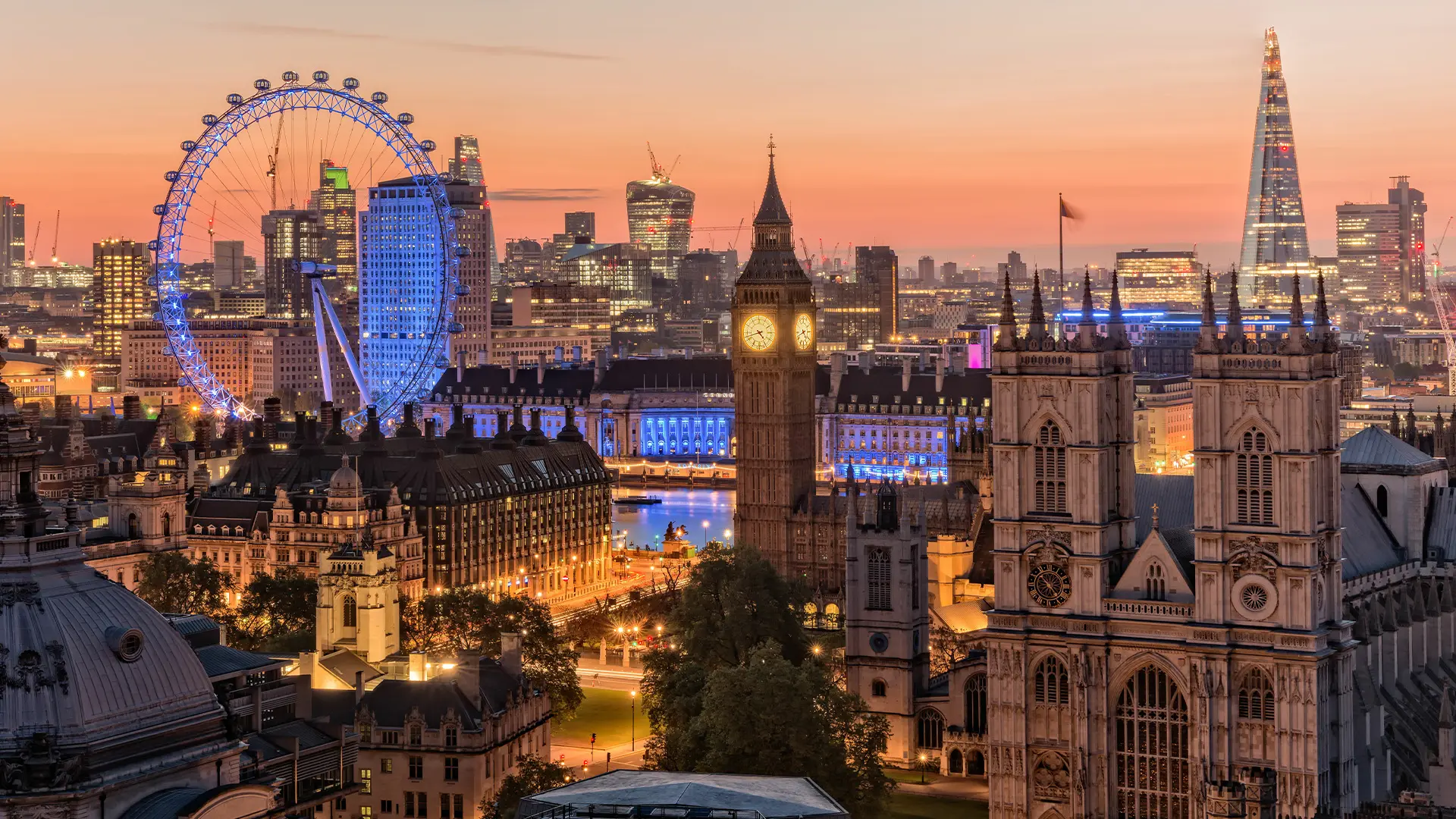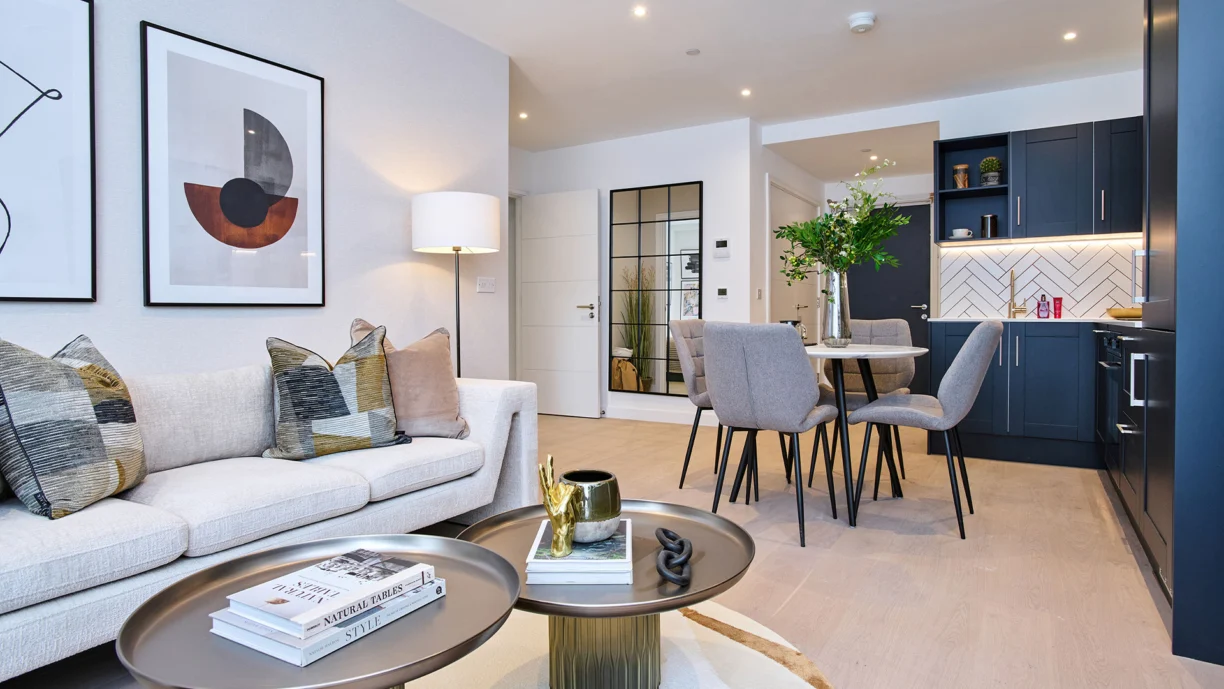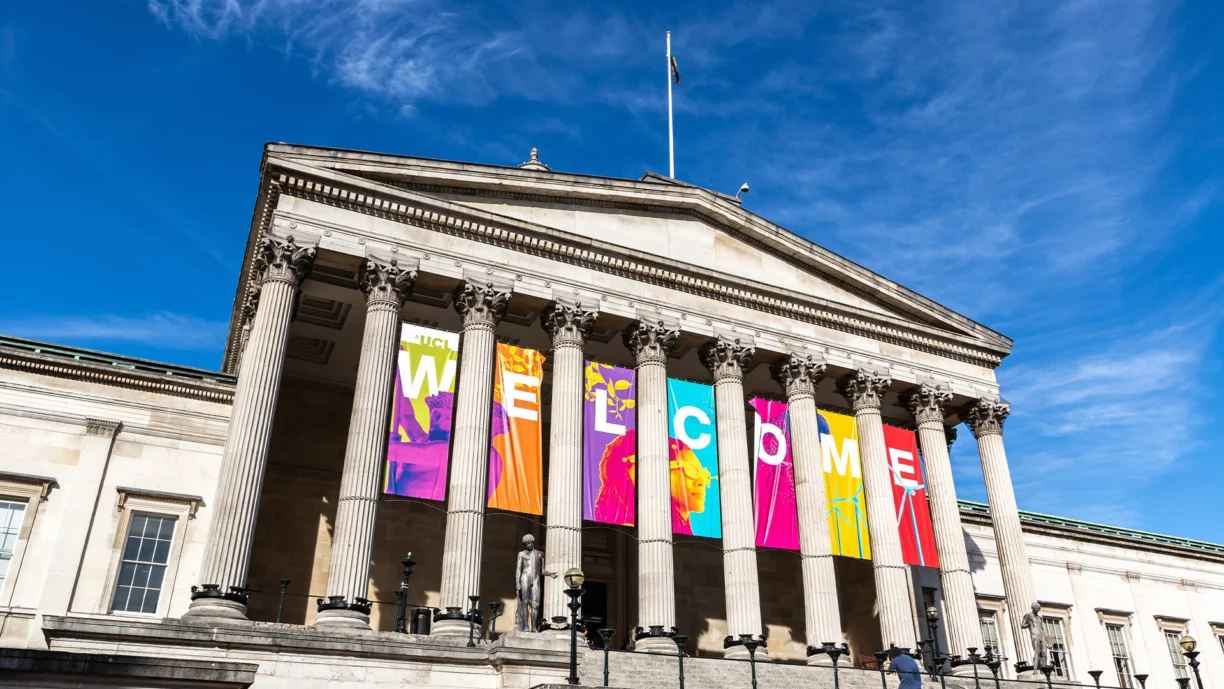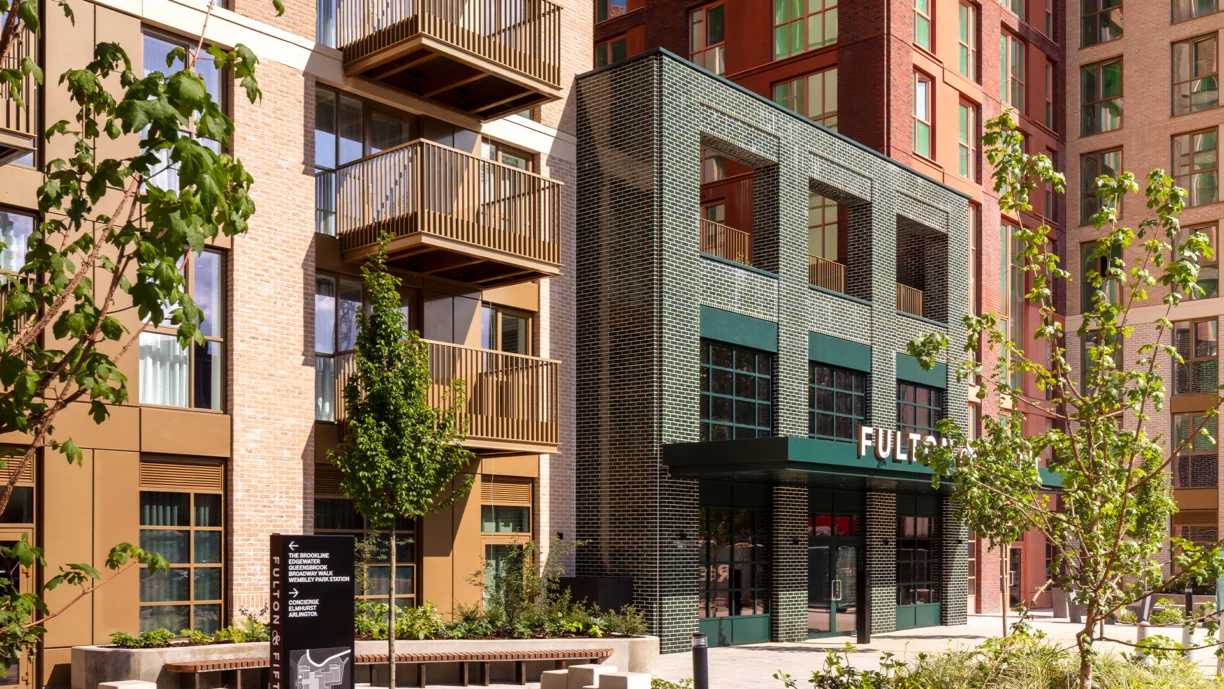
Why more GCC-based families are choosing to invest in London student property – and what to look for.
For many GCC parents, sending a child to study in London comes with both pride and practical concerns: Will they feel safe? Will they settle in easily? And is renting really the smartest long-term choice?
At Regal’s Fulton & Fifth development in Wembley, we’ve seen a surge in interest from international students attending UCL and Imperial College London. With fast, direct links into central London and high-spec, secure living, it’s become a top choice for families seeking more than just a rental.
That’s why we’ve created this blog — to answer the most frequently asked questions from GCC-based buyers and to explore what makes the decision to buy property in London such a compelling one.
We’ll cover why more families are opting to purchase instead of rent, what to look for in London student accommodation, and why areas like Wembley — with strong transport, modern amenities, and long-term value — are rising to the top of every parent’s shortlist.
Why GCC Parents Are Choosing to Buy, Not Rent
Renting a flat for your child in central London can cost anywhere between £70,000 and £120,000 over three years — a significant outlay with no financial return.
By comparison, buying a property offers a range of long-term benefits:
- Ownership of a strategic asset in one of the world’s most stable real estate markets
- The potential to recover the equivalent of what you’d have spent on rent — and benefit from capital appreciation. In Wembley, for example, house prices are forecast to grow by up to 20% by 2030
- Greater control over your child’s living conditions, from location and layout to security and amenities
Today’s apartments for sale in London — especially in areas like Wembley — are designed with modern students in mind. Developments often include concierge services, co-working spaces, fitness centres, and resident events, creating a safe and supportive environment that helps students feel at home from day one.

1. Buying vs. Renting: Which Is More Cost-Effective?
London rents continue to rise year on year. As of 2025:
- One-bedroom apartments rent for £1,700–£1,900/month
- Two-bedroom apartments rent for £2,200–£2,500/month
That’s £24,000–£30,000 annually, and £72,000–£90,000+ over three years.
Now compare that to buying:
- Wembley apartment price: ~£480,000
- Deposit (30%): £144,000
- Mortgage: £336,000
- Monthly repayments: £1,800–£2,000 (at 5.5–6% interest)
Mortgage costs are often comparable to rent – but you own the property and benefit from capital appreciation.
You’re not just covering costs – you’re growing your wealth. And after graduation, the flat can be rented out for 4.5–5.5% net yield, adding to your London property portfolio.
2. Can I Get an International Mortgage from the GCC?
Yes — many GCC-based buyers are eligible for international mortgages when buying property in the UK. In fact, a growing number of UK and specialist lenders actively cater to non-resident investors from Dubai and the wider GCC region. If you’d like to explore the different types of mortgages available — including Sharia-compliant options, get in touch with our GCC team below. They’ll connect you with the right expert for a no-obligation initial chat on lending for your personal circumstances.
What’s typically required?
- Deposit: Most lenders require 25–35% of the property’s value as a deposit for non-residents.
- Loan size: Mortgages are usually available from £100,000+, with terms up to 25 or even 30 years.
- Interest rates: Interest rates currently range between 5% and 6.5%, depending on factors such as your financial profile, loan-to-value (LTV) ratio, and whether the property is for personal use or investment.
- For our GCC-based clients, we’ve recently secured indicative rates from Namo & NatWest, including:
- 5.49% fixed for 2 years
- 5.10% fixed for 5 years
- These rates are subject to individual circumstances and eligibility. It’s also worth noting that interest rates are currently on a downward trajectory, which may improve affordability in the months ahead.
- For our GCC-based clients, we’ve recently secured indicative rates from Namo & NatWest, including:
Documentation: You’ll typically need:
- Valid passport
- Proof of GCC residency
- Proof of income (salary slips or audited accounts)
- Proof of address in the GCC
- Bank statements and possibly a credit reference
Can I apply remotely?
Yes — the entire process can be handled from Dubai, often with support from international mortgage brokers who specialise in working with overseas buyers.
Is it better to pay cash?
While many GCC buyers choose to pay cash, using a mortgage allows you to preserve liquidity, reduce upfront capital, and in some cases, match monthly repayments to the cost of renting — especially in areas like Wembley where mortgage payments and local rents can be similar.
In short, if you’re financially eligible, taking out an international mortgage is a viable and strategic way to finance your London property investment while your child studies in the UK.
3. The Best Locations for GCC Students in London

While UCL, LSE, King’s, and Imperial College London are centrally located, parents are now considering zones with strong access links and high-quality developments.
Wembley
Wembley is quickly becoming one of the most popular areas for international students from the GCC — and it offers an appealing balance of affordability, lifestyle, and long-term growth:
- One of the largest student populations in London and a big Middle East population
- Home to the second-largest Build-to-Rent (BTR) market in the city, after Stratford
- Fast links to major universities via the Jubilee, Metropolitan, and Chiltern Rail lines
- Only 30 minutes to UCL or Imperial College London
- 57% price growth over the past 10 years (Rightmove, 2024)
- Secure, community-oriented developments with concierge, gyms, co-working spaces, and resident events
- A growing international student population and thriving regeneration story
King’s Cross
Centrally located and packed with amenities, King’s Cross is an attractive option for students at UCL, SOAS, or King’s. That said, the price tag can be a hurdle:
- Walking distance to several top universities
- Excellent rail and Eurostar connections
- Surrounded by redeveloped areas like Coal Drops Yard with cafés, shops, and study spaces
- Premium property prices — typically higher than zones like Wembley
- More suited to families with a larger budget or those seeking centrality over space
White City / Shepherd’s Bush
Located in West London, White City is increasingly popular with students attending Imperial’s White City campus. It’s well-connected and still relatively affordable — but it’s more mixed-use and urban than student-led:
- Easy access to central London via Central and Overground lines
- Home to Imperial’s innovation campus and close to Westfield London
- A growing number of new-build developments
- Slightly more urban and commercial in feel, with fewer community-focused residential zones
4. What Kind of Property to Buy

When searching for London property for students, it’s best to prioritise homes that are low-maintenance and lifestyle-friendly. While period properties may offer classic English charm and often come with a lower price tag, they require ongoing upkeep — which can be stressful for both students and overseas parents.
In contrast, new-build apartments offer peace of mind. They’re more secure, typically include 24/7 concierge services, and require far less maintenance — ideal for overseas buyers seeking a low-stress purchase. For a more detailed comparison tailored to your situation, you can continue the conversation by filling out a quick form — a consultant will follow up shortly.
For example, in Wembley, an older one-bedroom flat might start at around £300,000 to £380,000 but could need refurbishments. A comparable new-build one-bedroom apartment starts from £550,000–£600,000, but comes with a modern spec and a 10-year warranty, making it a smarter choice long-term.
The best options tend to be studio, one- or two-bedroom new builds — perfect for solo living or sharing. Sites like SpareRoom.co.uk make it easy for students to find trusted flatmates.
But it’s not just about the flat itself. Amenities play a big role in wellbeing and adjustment. Look for developments with on-site study lounges or co-working spaces, ideal for Zoom classes or late-night group projects. A gym or fitness centre is also valuable — especially during the darker winter months, when regular exercise can make a huge difference to mental health. Some buildings, like Fulton & Fifth, even offer cinema rooms or resident lounges, helping your child feel more at home and giving them opportunities to meet others and settle in quickly.
5. What GCC Buyers Need to Know: Legal and Tax

Buying property in the UK as a non-resident is a relatively straightforward process, with no restrictions on foreign ownership. However, it’s important to understand the financial and legal responsibilities that come with it — especially if you plan to use the property for investment or rent it out once your child graduates.
No restrictions on ownership
You don’t need to be a UK citizen or resident to buy property. Individuals, families, and even international companies can purchase freehold or leasehold property in England.
Stamp Duty Land Tax (SDLT)
All buyers pay SDLT on UK property purchases over £250,000 — but non-resident buyers are subject to a 2% overseas buyer surcharge. This is in addition to the regular SDLT rates and applies even if the property is purchased jointly with a UK resident. You can work out your stamp duty payable through the UK government stamp duty calculator.
Income Tax (on rental income)
If the property is let out — either during term breaks or after graduation — you’ll need to pay income tax on any rental earnings. The rate depends on your income band but starts at 20%. Most overseas landlords register with the Non-Resident Landlord (NRL) Scheme, allowing agents to pass on rental income gross (before tax), with annual tax declarations submitted to HMRC.
Capital Gains Tax (CGT)
If you later sell the property for a profit, you may be liable for Capital Gains Tax, which currently applies at 18% or 28%, depending on your income level.
A UK-based solicitor will handle all due diligence, paperwork, and registrations – and everything can be done remotely. Many GCC parents also work with tax advisers to determine whether to purchase in their name or their child’s. At Regal, we regularly host seminars and webinars with trusted legal and tax experts covering the latest updates. We also maintain a vetted list of recommended solicitors and advisers, used by thousands of our buyers. If you’d like an introduction, just get in touch below.
6. Checklist: What You’ll Need to Get Started
Documents Required:
- Passport and civil ID
- Proof of GCC country residency
- Proof of income or savings
- Proof of address in Dubai
Typical Timeline:
- Search and reserve: 1–2 weeks
- Legal process: 4–8 weeks
- Completion (for new-builds): Immediate or phased
FAQs:
- Can I buy in my child’s name? Yes, with proper legal structure
- Do I need to be in the UK? No – the process can be completed remotely
- Can I rent it out later? Absolutely – UK lettings agents handle everything
Ready to invest in London?

With more apartments for sale in London offering student-friendly design, cultural comfort, and strong financial upside, it’s no surprise that GCC families are choosing to buy over rent.
If you’re exploring London student accommodation options and want to buy a property in a secure, future-ready home for your child — while building a long-term asset — now is the time to act. Request a consultation with a member of our GCC team to discuss your options.